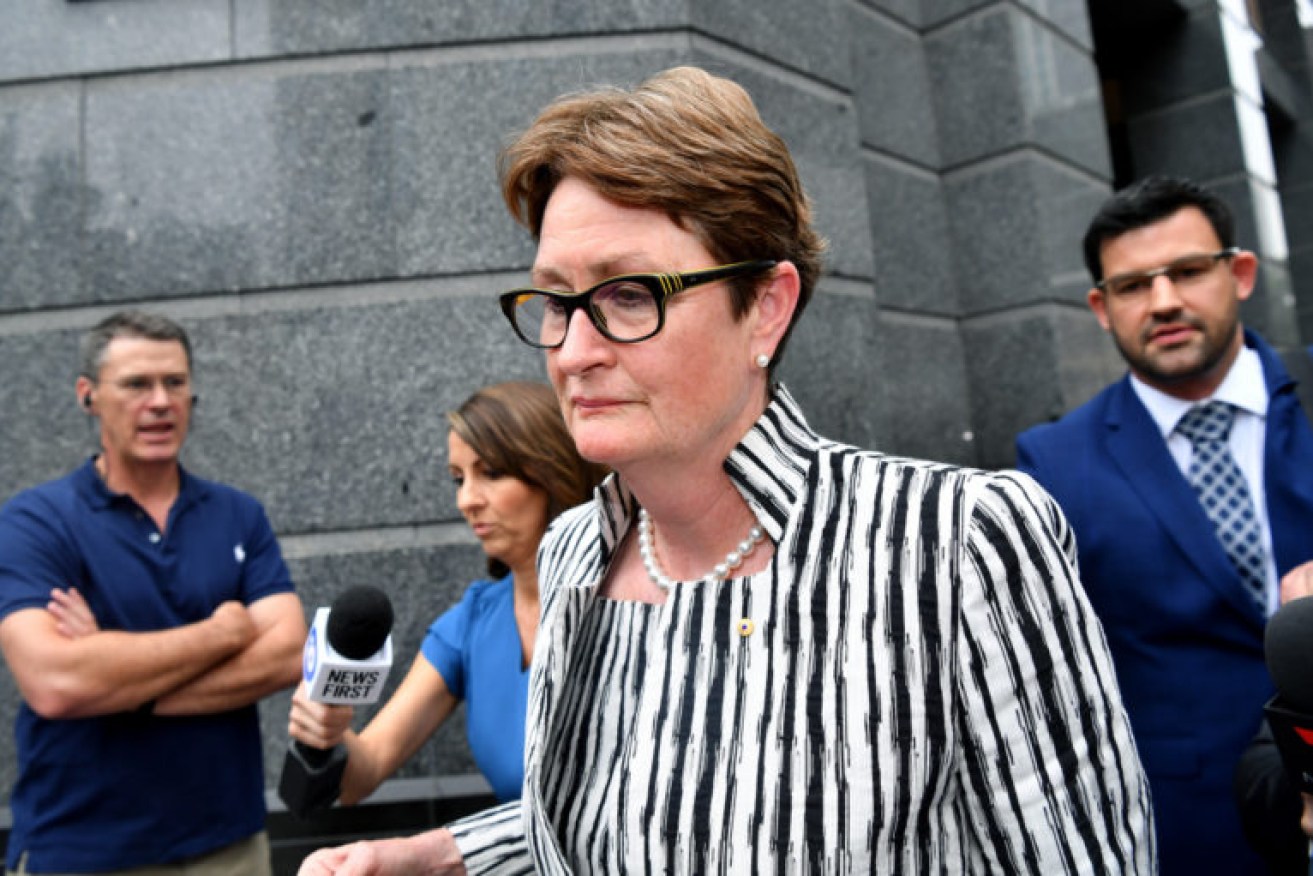CBA chair refused request to take fee cut after scandal


Catherine Livingstone said CBA's board had not challenged remuneration recommendations. Photo:AAP
Former Commonwealth Bank chairman David Turner refused to return a chunk of his 2017 director’s fee, despite the bank’s board asking him to do so in the wake of the money-laundering scandal that eventually cost CBA $700 million, the banking inquiry has heard.
The refusal came to light during a bruising encounter on Wednesday morning, when current CBA chair Catherine Livingstone went toe to toe with counsel assisting Rowena Orr QC.
Ms Livingstone – who took over from Mr Turner early in 2017 – admitted the bank had been unable to force him to comply with the board’s wishes and return 40 per cent of his director’s fee.
“The former chair did not agree to return any of his fees,” she said.
CBA’s other directors had agreed to a 20 per cent cut in their director’s fees for 2017, and had sought 40 per cent from Mr Turner.
However, Ms Livingstone told the financial services royal commission that Mr Turner disagreed with an APRA report’s characterisation of the board’s shortcomings.

Then CBA chairman David Turner (R) at a bank meeting. Photo: AAP
“Although the board requested that the former chair return those fees, that request was not acceded to?” Ms Orr asked
“That’s correct”, Ms Livingstone said.
Further, Mr Turner’s refusal to part with some of his $874,000 pay packet was not outlined in the Commonwealth Bank’s annual report – a decision Ms Livingstone questioned on Wednesday.
“I suppose I didn’t consider at the time including it, and maybe I should have,” she said.
The commission also heard that CBA’s remuneration committee had allowed all but one top executive to receive their full pay entitlements, including incentives, in 2016 – despite a series of emerging scandals that year.
They included the money-laundering breaches for which the bank was eventually penalised $700 million, fee-for-no-service charges and dodgy credit insurance schemes.
The only executive to suffer a cut was wealth chief Annabel Spring. Her pay was trimmed 5 per cent because of the Comminsure scandal.
Ms Livingstone told the inquiry the board agreed to that move after just 10 minutes of discussion.
Then CEO Ian Narev was paid a bonus of $2.8 million in 2016, despite the emerging scandals, and then chief risk officer David Cohen believed CBA’s risk criteria had been “fully met”.
Earlier on Wednesday, Ms Orr and Ms Livingstone locked horns over the latter’s memory of board discussions in late 2016, when the money-laundering scandal began to emerge.
On Tuesday, Ms Livingstone had said she could not recall if she challenged bank executives’ views about the money-laundering issues relating to CBA’s intelligent deposit machines.
However, on Wednesday, she said she had examined the issue.
“Management did not have the capacity, either because they couldn’t or they wouldn’t [deal with it]” Ms Livingstone said.
Ms Orr noted there was no mention of her questions in the minutes of the board meeting. But Ms Livingstone said not all discussions were minuted.
“We see no reflection of any interrogation to that effect in any of these discussions,” Ms Orr said.
“That doesn’t mean it didn’t happen,” Ms Livingstone replied.
That led Ms Orr to ask if CBA was meeting its legal obligations by failing to note all discussions. Ms Livingstone responded that it was not possible for all discussions in a board meeting to be minuted.
The commission also heard that only five CBA executives had had their variable pay reduced since 2011. Only one had received a cut of 20 per cent or more.








